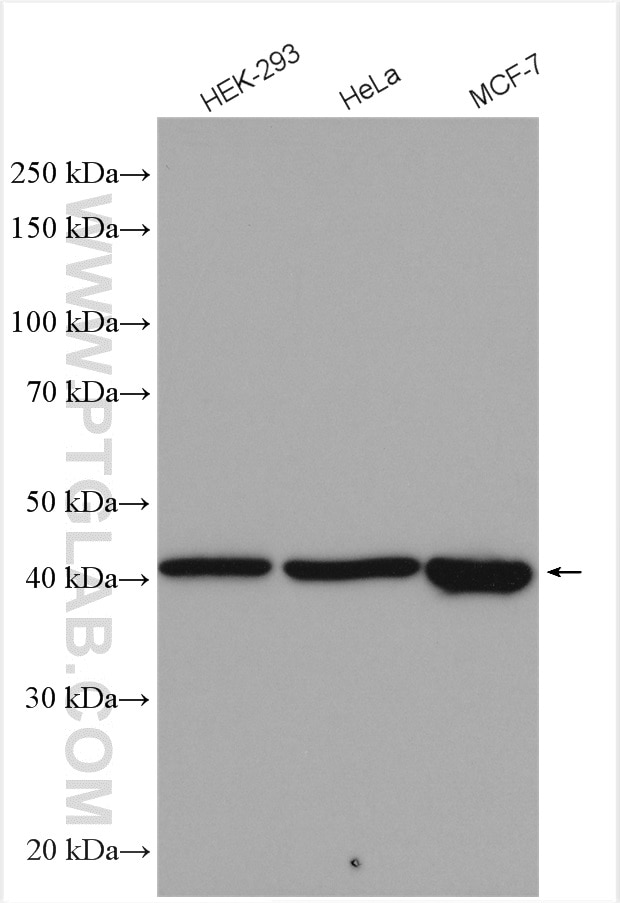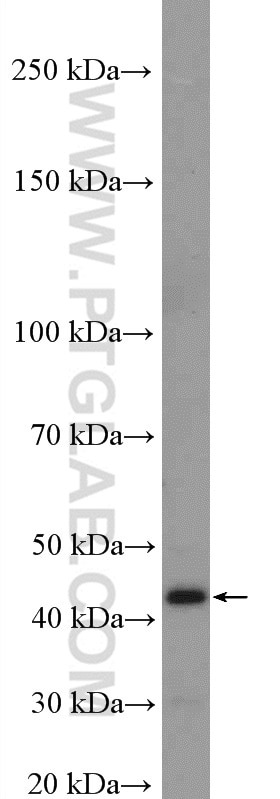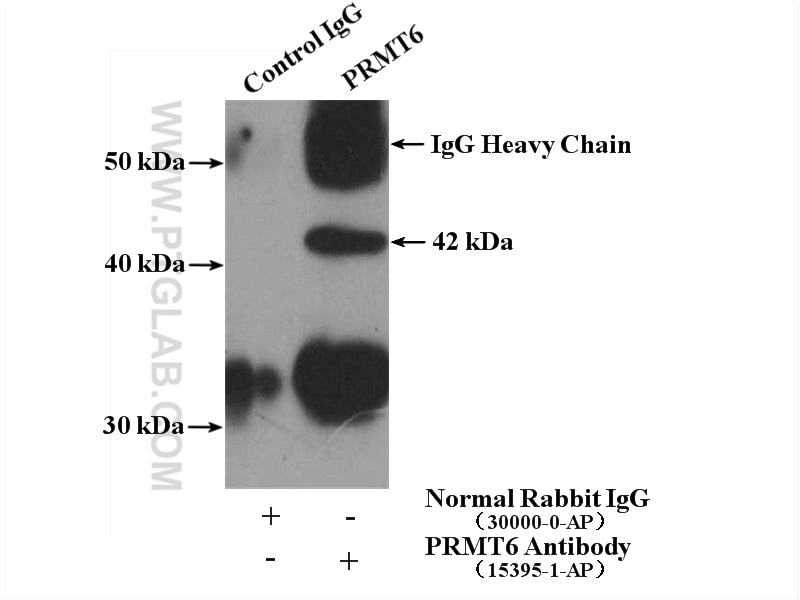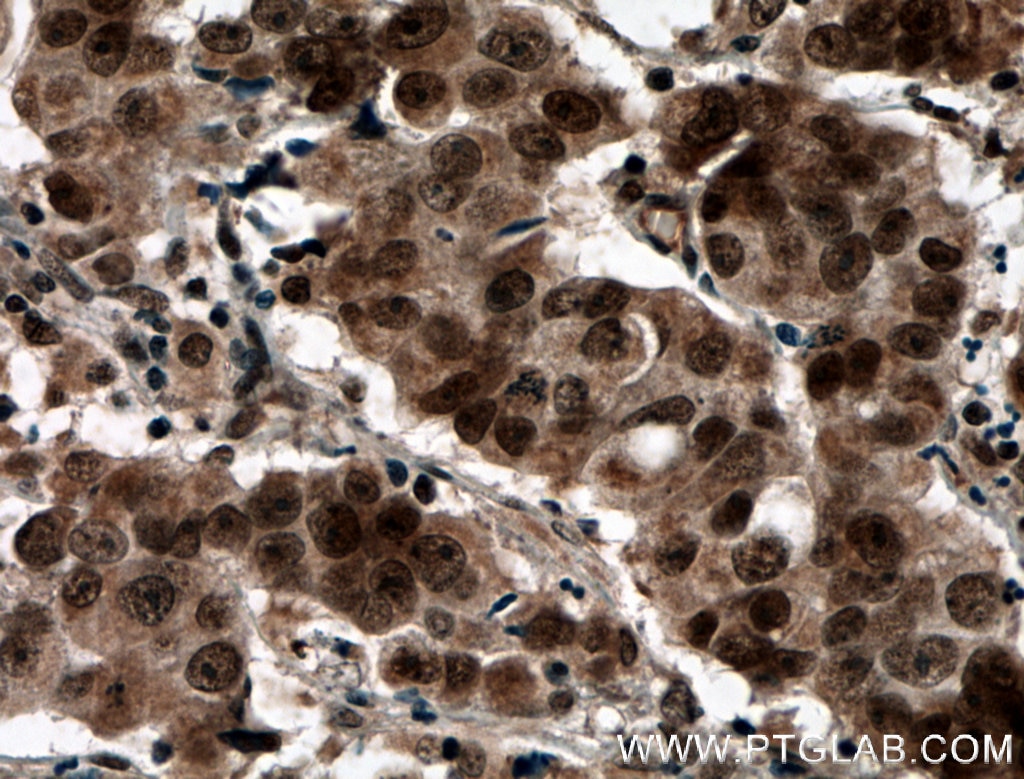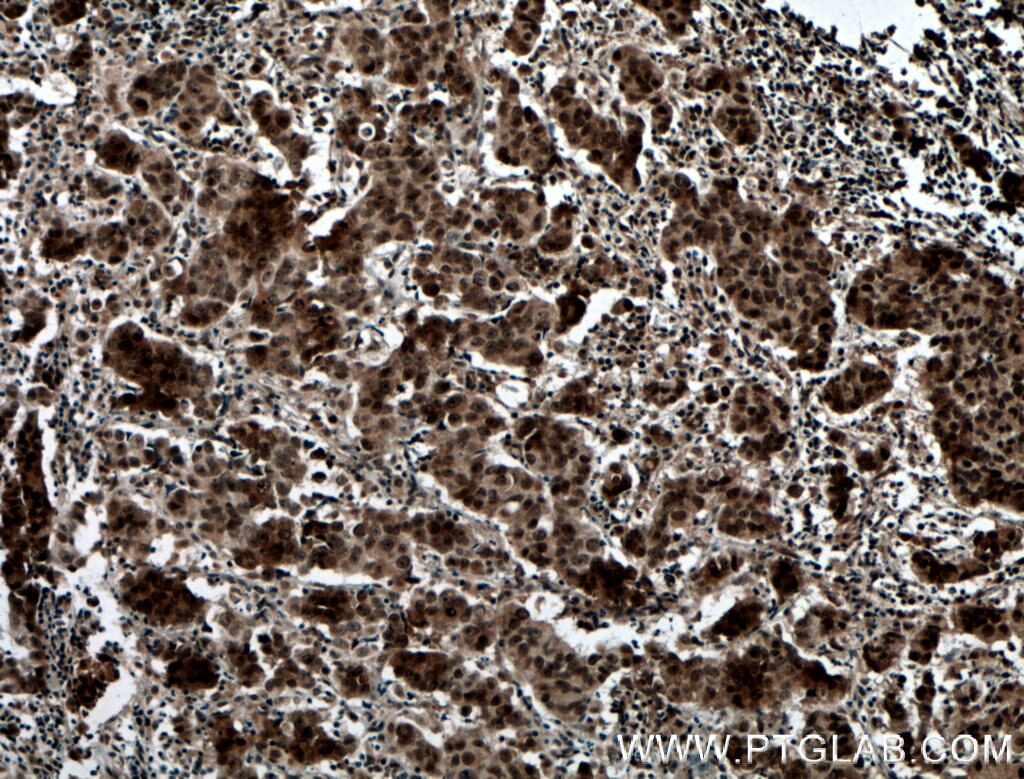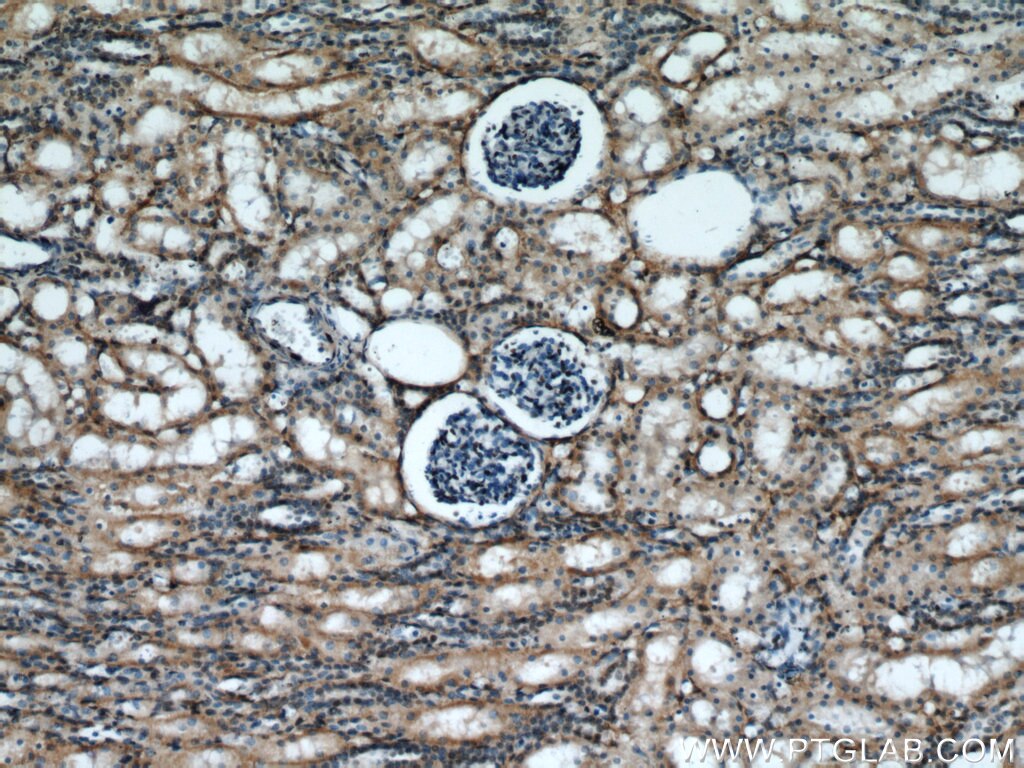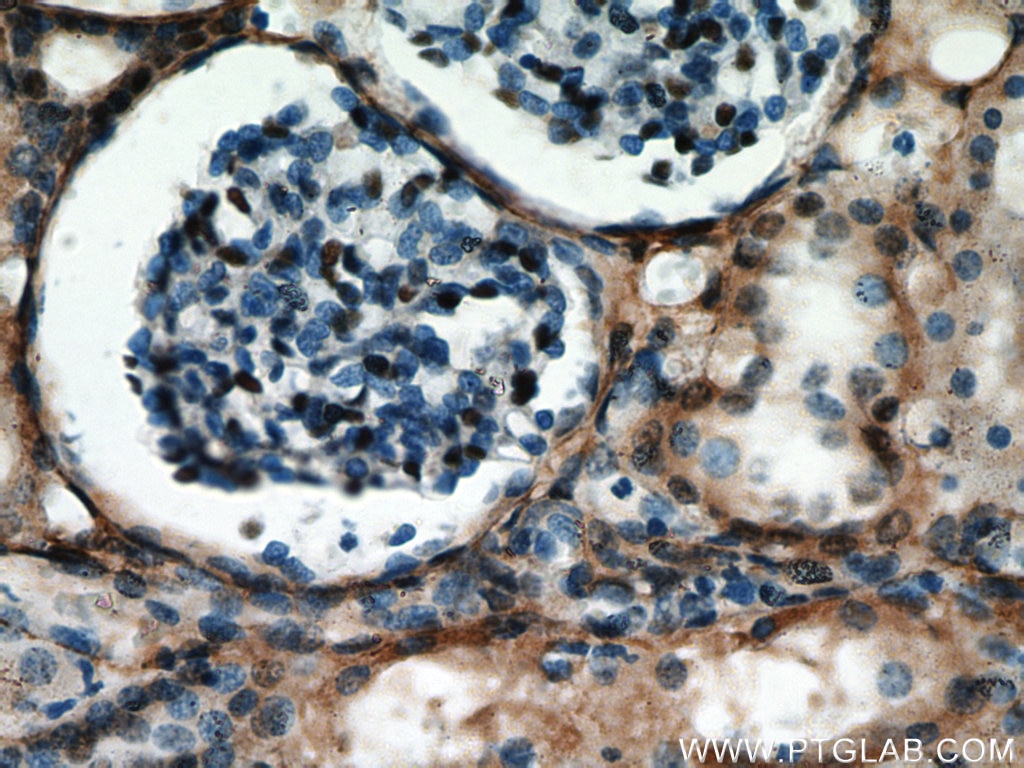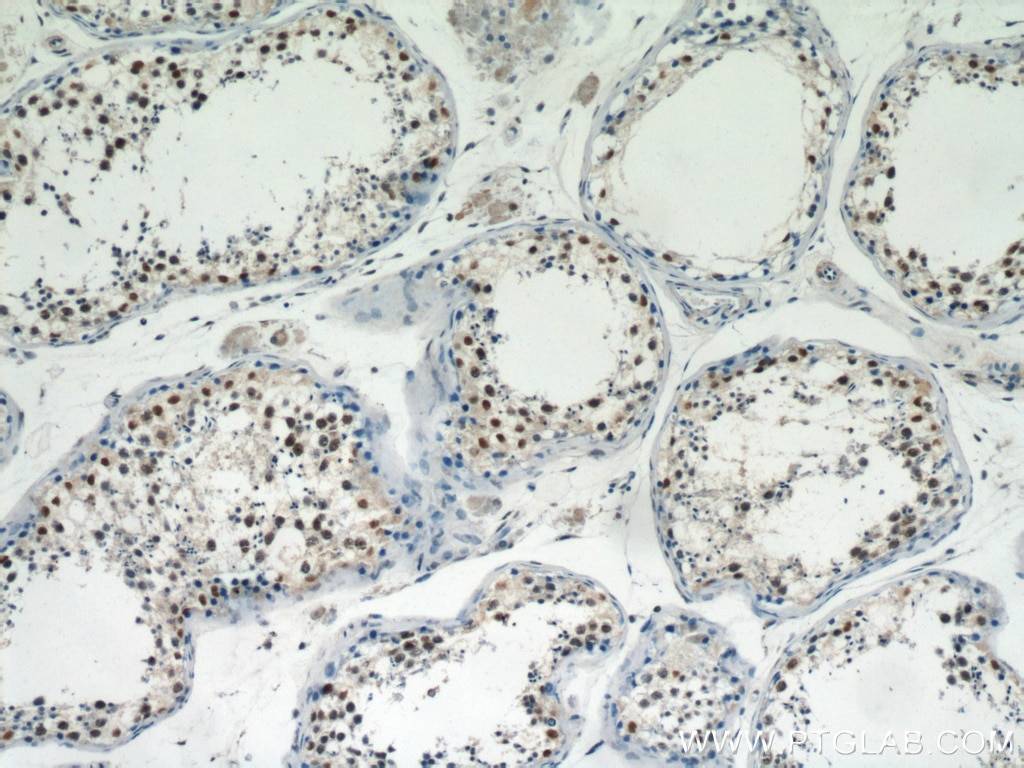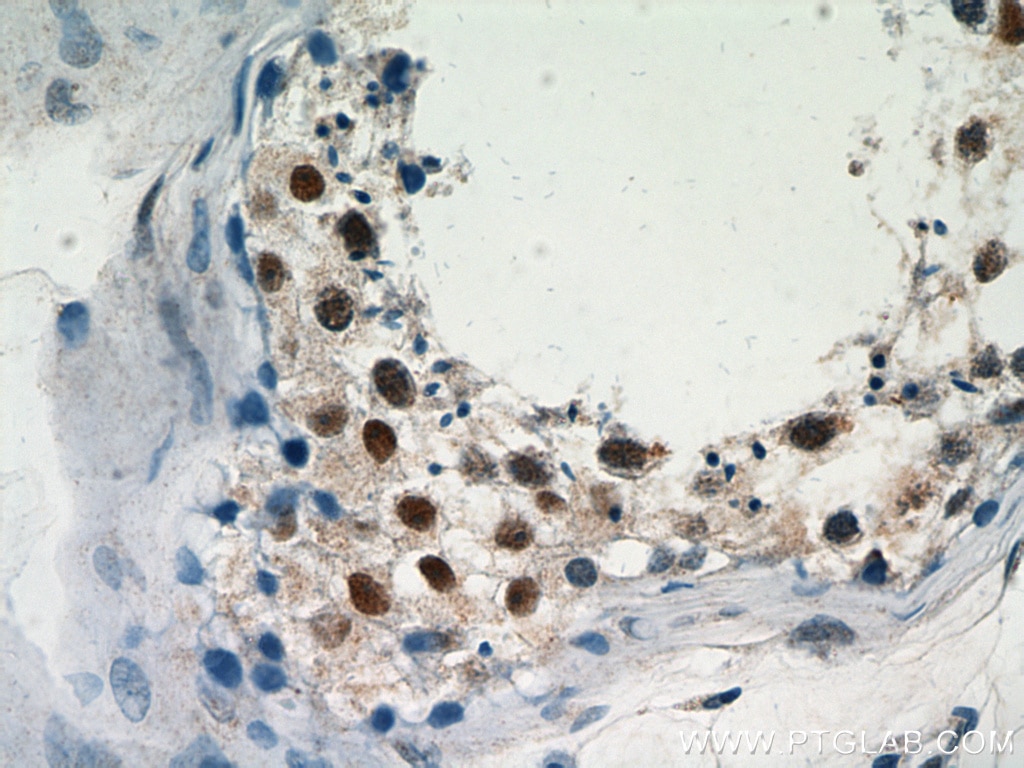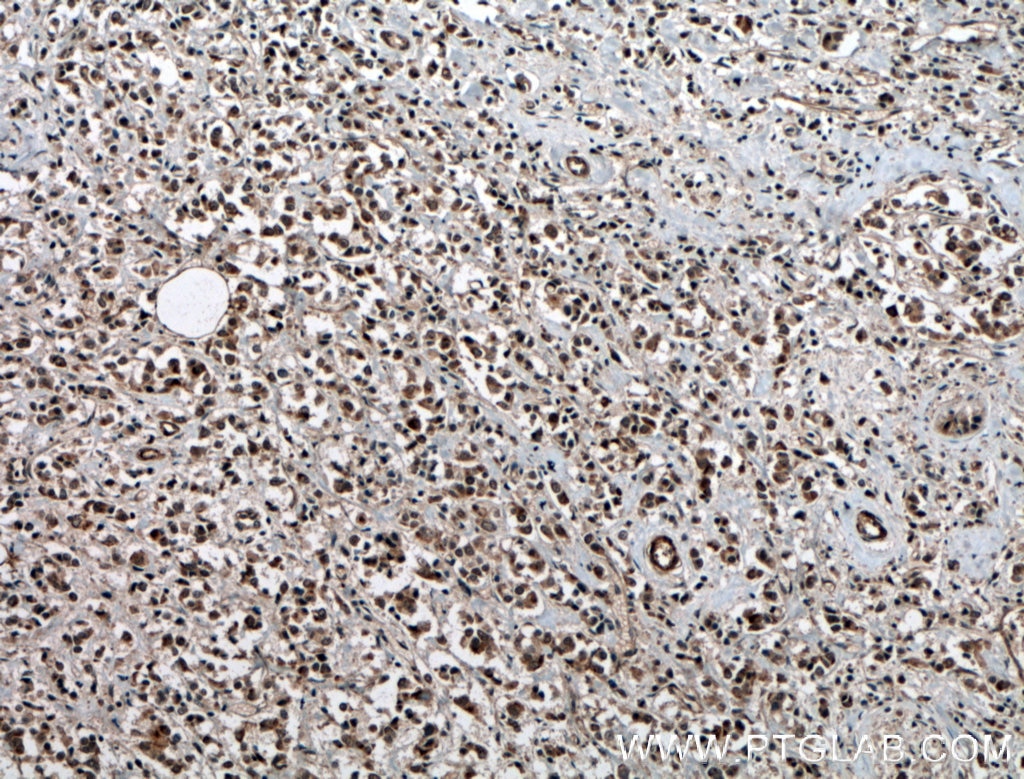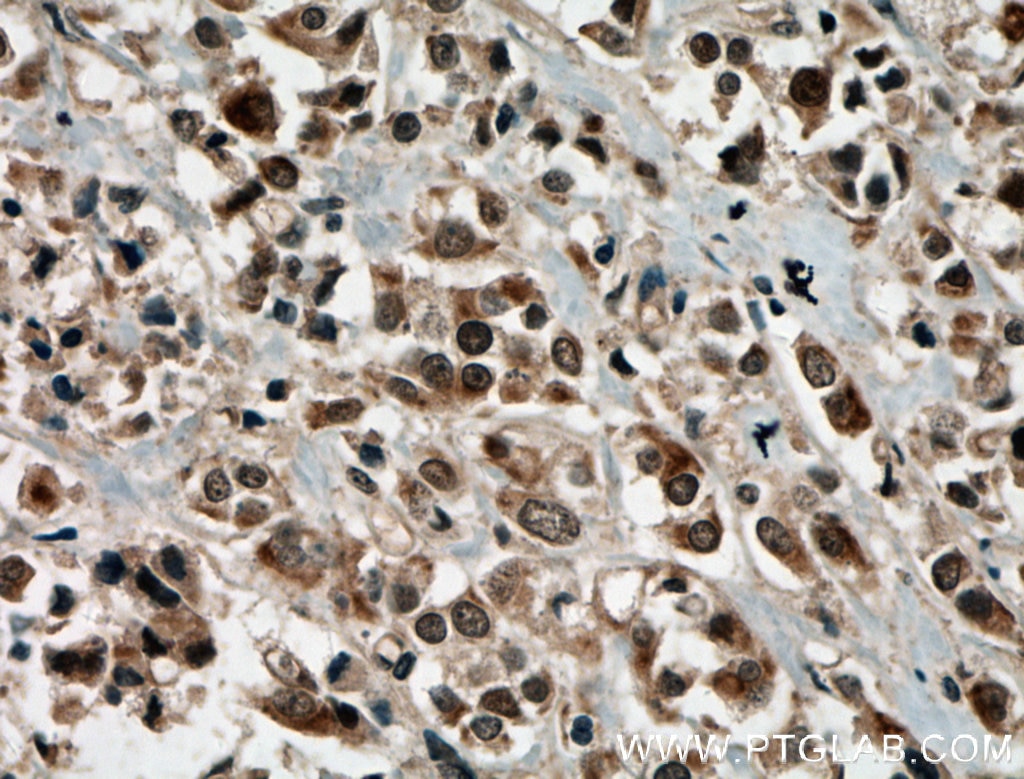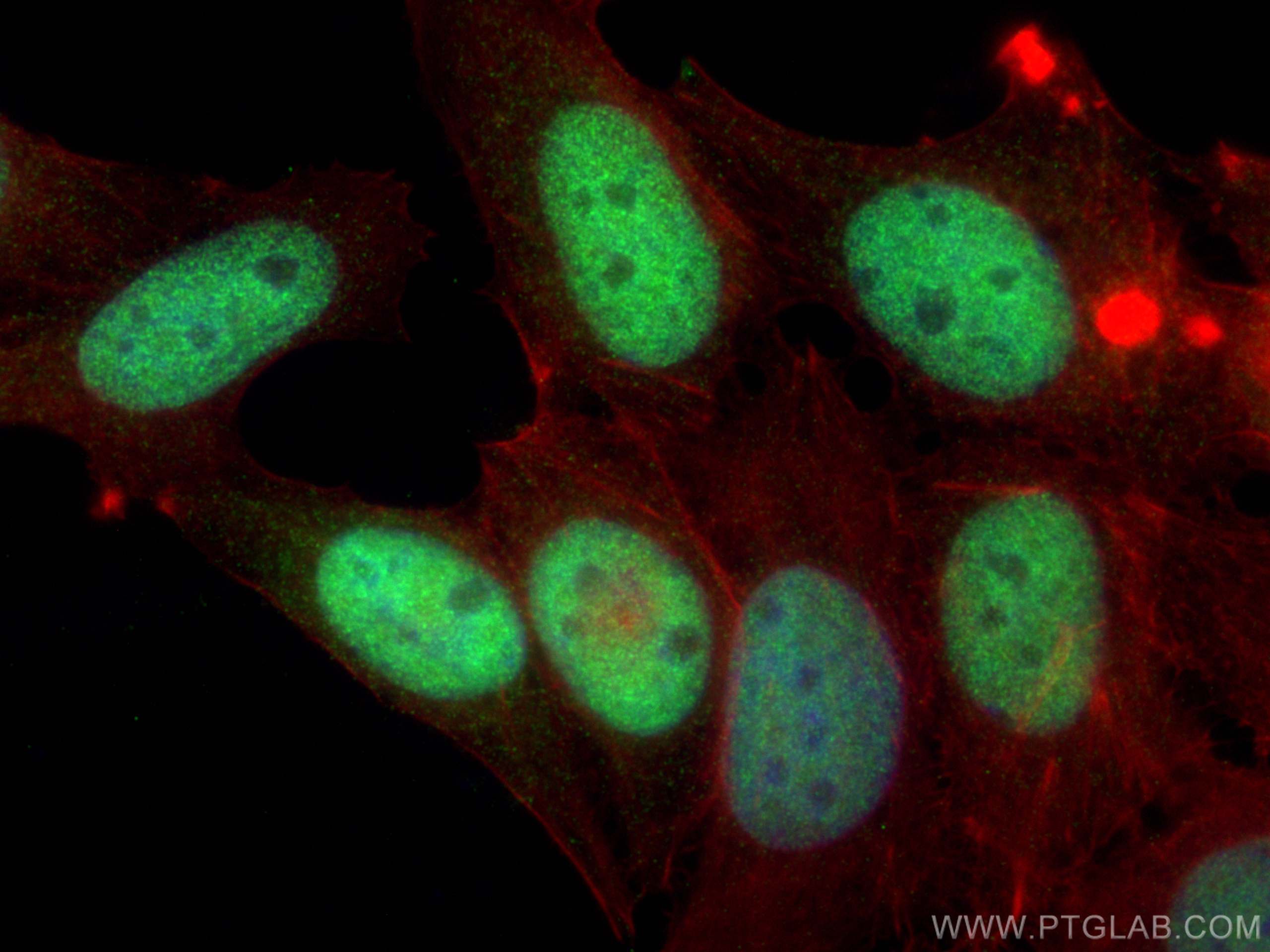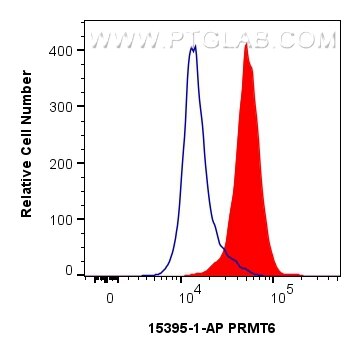- Featured Product
- KD/KO Validated
PRMT6 Polyklonaler Antikörper
PRMT6 Polyklonal Antikörper für WB, IHC, IF/ICC, FC (Intra), IP, ELISA
Wirt / Isotyp
Kaninchen / IgG
Getestete Reaktivität
human, Maus
Anwendung
WB, IHC, IF/ICC, FC (Intra), IP, ELISA
Konjugation
Unkonjugiert
Kat-Nr. : 15395-1-AP
Synonyme
Geprüfte Anwendungen
| Erfolgreiche Detektion in WB | HEK-293-Zellen, HeLa-Zellen, MCF-7-Zellen, Maushirngewebe |
| Erfolgreiche IP | HEK-293-Zellen |
| Erfolgreiche Detektion in IHC | humanes Prostatakarzinomgewebe, humanes Mammakarzinomgewebe, humanes Nierengewebe, humanes Hodengewebe Hinweis: Antigendemaskierung mit TE-Puffer pH 9,0 empfohlen. (*) Wahlweise kann die Antigendemaskierung auch mit Citratpuffer pH 6,0 erfolgen. |
| Erfolgreiche Detektion in IF/ICC | MCF-7-Zellen |
| Erfolgreiche Detektion in FC (Intra) | MCF-7-Zellen |
Empfohlene Verdünnung
| Anwendung | Verdünnung |
|---|---|
| Western Blot (WB) | WB : 1:2000-1:10000 |
| Immunpräzipitation (IP) | IP : 0.5-4.0 ug for 1.0-3.0 mg of total protein lysate |
| Immunhistochemie (IHC) | IHC : 1:50-1:500 |
| Immunfluoreszenz (IF)/ICC | IF/ICC : 1:300-1:1200 |
| Durchflusszytometrie (FC) (INTRA) | FC (INTRA) : 0.40 ug per 10^6 cells in a 100 µl suspension |
| It is recommended that this reagent should be titrated in each testing system to obtain optimal results. | |
| Sample-dependent, check data in validation data gallery | |
Veröffentlichte Anwendungen
| KD/KO | See 3 publications below |
| WB | See 13 publications below |
| IHC | See 3 publications below |
| IF | See 1 publications below |
Produktinformation
15395-1-AP bindet in WB, IHC, IF/ICC, FC (Intra), IP, ELISA PRMT6 und zeigt Reaktivität mit human, Maus
| Getestete Reaktivität | human, Maus |
| In Publikationen genannte Reaktivität | human, Maus |
| Wirt / Isotyp | Kaninchen / IgG |
| Klonalität | Polyklonal |
| Typ | Antikörper |
| Immunogen | PRMT6 fusion protein Ag7592 |
| Vollständiger Name | protein arginine methyltransferase 6 |
| Berechnetes Molekulargewicht | 42 kDa |
| Beobachtetes Molekulargewicht | 42 kDa |
| GenBank-Zugangsnummer | BC002729 |
| Gene symbol | PRMT6 |
| Gene ID (NCBI) | 55170 |
| Konjugation | Unkonjugiert |
| Form | Liquid |
| Reinigungsmethode | Antigen-Affinitätsreinigung |
| Lagerungspuffer | PBS with 0.02% sodium azide and 50% glycerol |
| Lagerungsbedingungen | Bei -20°C lagern. Nach dem Versand ein Jahr lang stabil Aliquotieren ist bei -20oC Lagerung nicht notwendig. 20ul Größen enthalten 0,1% BSA. |
Hintergrundinformationen
PRMT6 belongs to the protein arginine methyltransferase (PRMT) family that catalyzes the mono- and dimethylation of arginine residues in a variety of proteins. PRMT6 is a nuclear protein and is predominantly expressed in testis and kidney. Western blot analysis using this antibody detected a major band around 42 kDa in HeLa cells.
Protokolle
| PRODUKTSPEZIFISCHE PROTOKOLLE | |
|---|---|
| WB protocol for PRMT6 antibody 15395-1-AP | Protokoll herunterladen |
| IHC protocol for PRMT6 antibody 15395-1-AP | Protokoll herunterladenl |
| IF protocol for PRMT6 antibody 15395-1-AP | Protokoll herunterladen |
| IP protocol for PRMT6 antibody 15395-1-AP | Protokoll herunterladen |
| STANDARD-PROTOKOLLE | |
|---|---|
| Klicken Sie hier, um unsere Standardprotokolle anzuzeigen |
Publikationen
| Species | Application | Title |
|---|---|---|
EMBO Rep Arginine methylation of SIRT7 couples glucose sensing with mitochondria biogenesis.
| ||
PLoS Pathog SHMT2 and the BRCC36/BRISC deubiquitinase regulate HIV-1 Tat K63-ubiquitylation and destruction by autophagy. | ||
Mol Metab Disrupted Liver Oxidative Metabolism in Glycine N-Methyltransferase-Deficient Mice is Mitigated by Dietary Methionine Restriction. | ||
Aging (Albany NY) Cigarette smoke extract induces airway epithelial cell death via repressing PRMT6/AKT signaling. | ||
Front Cell Dev Biol F-Box Protein FBXW17-Mediated Proteasomal Degradation of Protein Methyltransferase PRMT6 Exaggerates CSE-Induced Lung Epithelial Inflammation and Apoptosis. | ||
Int J Oncol Inhibition of protein arginine methyltransferase 6 activates interferon signaling and induces the apoptosis of endometrial cancer cells via histone modification |
